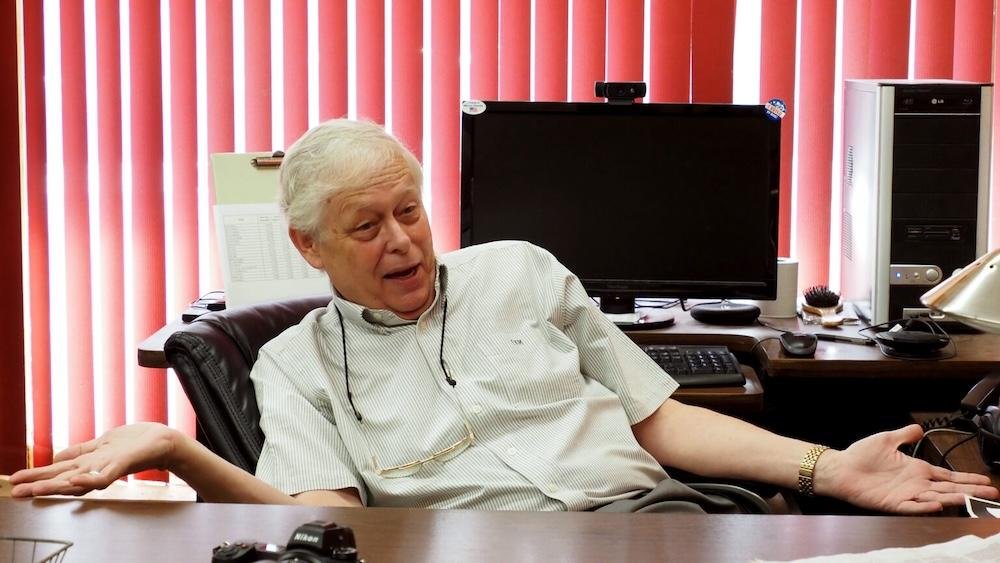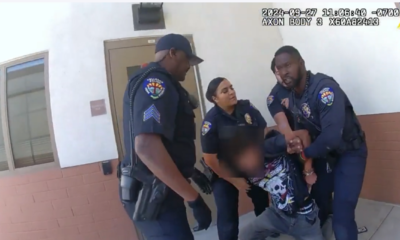Business
Police Chief Who Led Kansas Newspaper Raid Faces Felony Charges

Special prosecutors intend to charge former Marion Police Chief Gideon Cody with a low-level felony related to his actions following a controversial raid he led on the Marion County Record and the homes of the newspaper publisher and a councilwoman last year.
Despite significant errors in handling evidence, conducting a rushed investigation, and issuing faulty and unlawful search warrants, the special prosecutors concluded that the police did not commit any crimes while investigating a baseless suspicion of identity theft or carrying out the raid.
Riley County Attorney Barry Wilkerson and Sedgwick County District Attorney Marc Bennett released a 124-page report on Monday detailing their findings.
The prosecutors stated, “There is no evidence that Marion law enforcement agents recognized the inadequacy of the investigation or intentionally or knowingly misled either other law enforcement agents or the court.” According to their investigation, the officers genuinely believed they were investigating criminal acts.
The report also exonerates Marion County Record reporter Phyllis Zorn and editor Eric Meyer of any wrongdoing.
Meyer expressed frustration over the delay in clearing their names, stating, “Their report makes it clear that they arrived at this conclusion mere days after the raid, yet they left us hanging. We are pleased they believe Gideon Cody violated state law, but it’s disappointing others involved seem to have escaped scrutiny.”
Cody’s raid on August 11, 2023, violated constitutional protections, disrupted lives, led to five federal lawsuits, and cast a shadow over the town of about 2,000 people.
The prosecutors’ report, based on findings from the Kansas Bureau of Investigation (KBI) and Colorado Bureau of Investigation (CBI), outlines the events that led to Cody’s investigation and his attempts to secure KBI support before and after the raids.
KBI Special Agent Bethanie Popejoy recounted a call from Cody two days after the raid, during a church service, where he expressed regret and asked for KBI intervention, to which she responded it was too late.
Popejoy was startled and disappointed upon first reading the search warrants several days after the raid. She declined Cody’s request to issue a public statement defending his actions.
The report also delves into the involvement of restaurateur Kari Newell, whose drunk driving record was a catalyst for the raid. Her estranged husband sent her driving record to a friend, who then passed it to reporter Phyllis Zorn and Councilwoman Ruth Herbel, believing it was relevant to Newell’s liquor license application.
Zorn contacted the Kansas Department of Revenue to verify the record, following their instructions to use an online database. Meyer then informed the police of the record’s verification.
Cody, not yet certified as a law enforcement officer in Kansas, enlisted Officer Zach Hudlin for assistance due to his unfamiliarity with Kansas law. Misinterpretation of a conversation with a KDOR representative led Hudlin to erroneously believe Zorn had committed several crimes.
Prosecutors noted, “It is difficult to ascertain whether Officer Hudlin’s conclusions were the result of confirmation bias, a hurried investigation, or a misunderstanding of the KDOR representative’s explanation.”
Cody pressured County Attorney Joel Ensey to expedite the search warrants, which were subsequently approved without thorough review. Cody’s implication that the KBI supported the warrants was later contradicted by Popejoy.
Cody resigned in October following reports he had instructed Newell to delete text messages between them. Hudlin now serves as the acting police chief.
Special prosecutors indicated Cody’s actions regarding the text messages would result in a criminal charge of obstructing the judicial process, a low-level felony.
Phyllis Zorn expressed relief but also concern for the accountability process, noting, “With so many law enforcement officers aligned against me, there were times I worried, but I hoped justice would prevail.”
Emily Bradbury, executive director of the Kansas Press Association, welcomed the conclusion, emphasizing the importance of accountability for misuse of power against journalists.
The special prosecutors dismissed the notion that the raid was motivated by retaliation against the newspaper or political adversaries, concluding that Cody and his officers genuinely believed they had uncovered a crime.


















